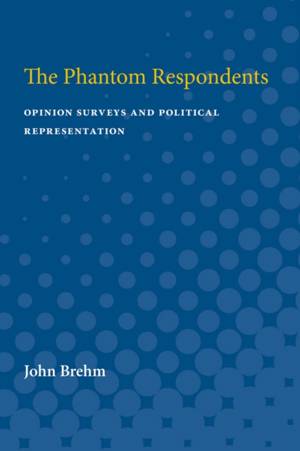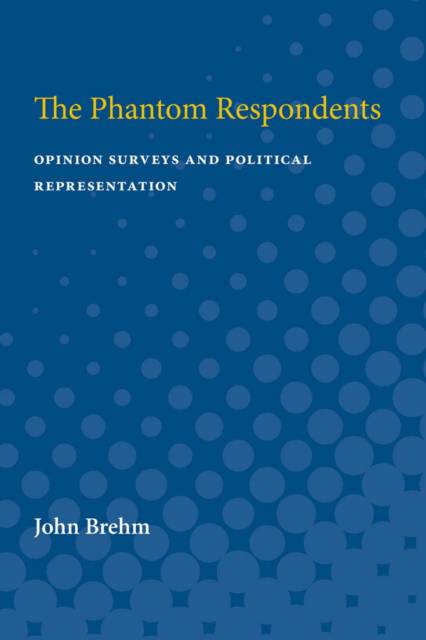
- Afhalen na 1 uur in een winkel met voorraad
- Gratis thuislevering in België vanaf € 30
- Ruim aanbod met 7 miljoen producten
- Afhalen na 1 uur in een winkel met voorraad
- Gratis thuislevering in België vanaf € 30
- Ruim aanbod met 7 miljoen producten
Zoeken
The Phantom Respondents
Opinion Surveys and Political Representation
John O Brehm
Paperback | Engels
€ 60,95
+ 121 punten
Omschrijving
Polls and surveys pervade political and social life in ways that are both conspicuous and subtle. We gauge the success of presidential aspirants by how well they scored in polls broadcast on the nightly news. Our political leaders and candidates for every major office study the polls to identify the public's preferences on controversial policies. The Phantom Respondents develops the simple premise that public opinion surveys and polls have become a modern vehicle for political representation, and that as such, we must attend to the quality of representation that surveys and polls provide.For all the many and varied uses of surveys and polls, there is one weakness common to all: the steadily rising numbers of people who refuse to answer the interviewer's questionnaire. The irony is biting: at the very same time that we grow more dependent upon surveys and polls, the representativeness of the same polls and surveys is in jeopardy. Survey nonresponse undermines the fairness of surveys, amplifies inequalities in political representation, and imperils scientific research by misrepresenting general public opinion.This book will be of interest to anyone who uses data from survey research. While the specific focus of this book is aimed at the effect that survey nonresponse has upon understanding politics, scholars in such diverse fields as economics, sociology, and epidemiology could easily draw extensions to their primary concerns.
Specificaties
Betrokkenen
- Auteur(s):
- Uitgeverij:
Inhoud
- Aantal bladzijden:
- 276
- Taal:
- Engels
Eigenschappen
- Productcode (EAN):
- 9780472750498
- Verschijningsdatum:
- 1/01/1993
- Uitvoering:
- Paperback
- Formaat:
- Trade paperback (VS)
- Afmetingen:
- 152 mm x 229 mm
- Gewicht:
- 412 g

Alleen bij Standaard Boekhandel
+ 121 punten op je klantenkaart van Standaard Boekhandel
Beoordelingen
We publiceren alleen reviews die voldoen aan de voorwaarden voor reviews. Bekijk onze voorwaarden voor reviews.











